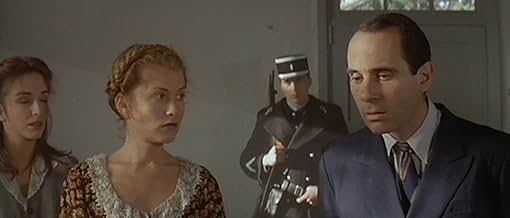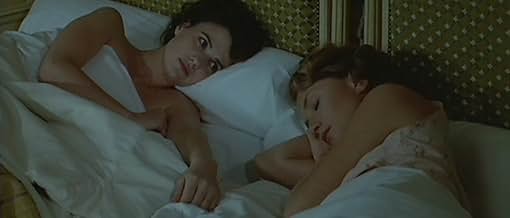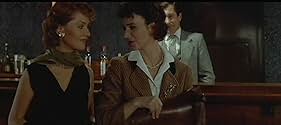Diane Kurys made four films out of her childhood and adolescent experience; that's one of the richest mining for memories in cinematic history. Besides Coup de foudre/Entre nous, there are C'est la vie, Diabolo menthe/Peppermint soda, and Cocktail Molotov (which I have commented on). Kurys's experience is growing up Jewish in post-war France, where the social values are secular but the traditions of the community she belongs to are not.
The story of Lena and Michel may seem bizarre to North Americans--they meet and marry on the same day to escape deportation to the death camps--but it must have seemed quite understandable to the people who had to live through that madness. That Michel loves Lena passionately while she finds him dull and vulgar is also normal. These people are making-do with what they've been given, as are Madeleine and Costa, the other unhappy couple.
You either love or hate Isabelle Huppert--I must admit to the latter many times over the years, but Miou-Miou is worth whatever the rental or purchase price for this picture is: she's just wonderful; the smallest gesture of her hand carries so much meaning. One great scene has Costa, the world's worst businessman, bent over the sewing machine trying to add sleeves to shirts with only one sleeve that he's bought on the black market; Madeleine stands in the next room working at a sculpture, simultaneously trying to console Costa and quietly make him realize what a mess their lives have become.





























